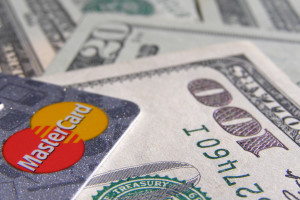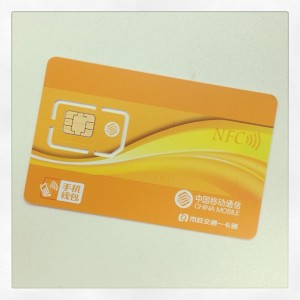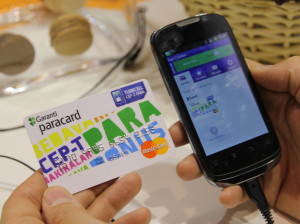Category: Merchant Services Account
February 17th, 2014 by Elma Jane
Facts about Chargeback
Merchants know chargebacks are bad, but many aren’t aware of simple facts that can help them better understand and guard against fraud accordingly.
Do you know which month is the worst for fraud charge backs?
which transaction amounts are the most likely to be disputed?
or which U.S. states are the biggest offenders?
If not, a Big Data fraud science firm – will help you prepare for a smoother 2014.
Facts you’ll learn:
The most common fraudulent chargeback amount.
The day of the week when chargebacks are most likely to occur.
The time of year charge backs are most likely to occur.
49% of all fraudulent chargebacks happen after 60 days or more from date of purchase.
$1,000 is the most common attempted unauthorized sales amount (followed by $2,500, $2,000, $1,500 and $5,000).
11% of all fraudulent transactions fall under the Merchant category “Code of 7299”.
Services. The word most often found in registered fictitious names for fraudulent merchant accounts is “Services”.
Wednesday Is the day of the week when the most chargebacks (19%) occur.
One-Third of all fraud chargebacks happen in the fall (September to November).
California Republic is the top state registered by fraudulent businesses, accounting for 14% of chargebacks the U.S. total.
Florida, Texas and New York round out the top four states with 12%, 9% and 7% respectively.
Posted in Best Practices for Merchants, Credit card Processing, Credit Card Security, Electronic Payments, Merchant Services Account, Payment Card Industry PCI Security Tagged with: big data, charge backs, chargeback, disputed, fraudulent businesses, fraudulent transactions, guard against fraud, merchant accounts, unauthorized sales
January 6th, 2014 by Elma Jane
It can be difficult for travel agencies to choose a merchant services provider. The credit card processing industry generally categorizes travel agents as a high risk business type due to the fact that most travel agency transactions take place long before the actual product or service is delivered to the customer. This leaves travel merchants open to chargebacks and other payment disputes, which are costly procedures that deter many merchant services providers from offering travel merchant accounts.
National Transaction Corporation is one of the travel merchant account providers and credit card processors to provide high risk merchant services for travel agents. Most providers are geared toward e-commerce business types, although some offer options for traditional travel credit card processing. National Transaction Corporation (nationaltransaction.com) is a Coral Springs, FL-based, NTC’s member bank is US Bank Minneapolis, MN; that offers high risk travel agent merchant accounts. NTC’s credit card processing, no holds on funding, integration with Trams, Sabre, and ARC business solutions, and payment gateways for e-commerce travel merchants. National Transaction Corporation’s parent company Elavon, has a grade of “C” award. The Better Business Bureau (BBB) currently grants National Transaction Corporation an “A+” grade, citing only one complaint in the last three years.
Posted in Credit card Processing, e-commerce & m-commerce, Electronic Payments, Internet Payment Gateway, Merchant Services Account, Travel Agency Agents Tagged with: chargebacks, credit card processing, e-commerce, high risk, merchant services provider, no holds funding, payment disputes, payment gateways, provider's, transactions, travel agencies, travel agency, travel agents, travel merchant account, travel merchants
December 16th, 2013 by Elma Jane
1. Account Updater (Visa)
Incorrect billing information leads to declined credit cards, loss of sales and unhappy customers.
Visa touts its Account Updater as an easier way to keep customer data current. The tool appends all card data with up-to-date customer info so businesses can avoid difficulties over address changes, name changes, expired cards and more.
The tool can benefit any business that bills customers on a recurring basis.
It eliminates the need for manual administration, so it can lower your business’s operational costs and customer-service expenses. And by saving your clients the hassle of a declined payment, you can boost customer satisfaction and overall sales.
2. Netswipe
Paying online is convenient for customers, but keying in an unwieldy credit card number is still a pain.
Netswipe from Jumio gives customers an easier way: The tool lets users pay by snapping a photo of their credit card; it’s almost as easy as swiping your card through a traditional card reader.
According to Jumio, customers can use their smartphone or tablet to scan a card in as little as 5 seconds, whereas traditional key entry takes 60 seconds or more, on average. Having a quick and convenient way to pay could help contribute to a positive buying experience and encourage repeat business.
The system is compatible with any iOS or Android mobile device, as well as with any computer with a webcam.
3. Netverify
Jumio’s fraud-scrubbing tool helps you determine if your customers are who they say they are.
Net verify allows customers to snap a picture of their driver’s license or other identification using a smartphone, tablet or PC webcam. Once the image is taken, the tool can verify the authenticity of the documentation in as little as 60 seconds.
That’s much faster and more convenient than asking a customer to fax or mail a copy of their ID in the middle of a transaction.
The tool can verify identifying documents from more than 60 countries…including passports, ID cards and driver’s licenses, and even bank statements and utility bills. Jumio says its software is smart enough to automatically reject nonauthentic documents.
And customers can rest easy knowing that all submitted information is protected with 256-bit encryption to prevent identity theft.
Online merchants embed Netverify into their websites as part of the checkout process.
4. Payment Gateway
Payment Gateway service does all the heavy lifting of routing and managing credit card transactions online.
Portals like this one benefit small businesses by providing a fast and secure transmission of credit card data between your website and the major payment networks. It works a lot like a traditional credit card reader, but uses the Internet to process transactions instead of a phone line.
Payment Gateway also offers built-in fraud-prevention tools and supports a range of payment options, including all major credit cards and debit cards.
5. PayPal Here
Mobile credit card processing services like PayPal Here make it easy to accept credit cards in person using a smartphone or tablet.
PayPal Here and other similar services send you a dongle that attaches directly to your iPhone, iPad or Android device, allowing you to swipe physical credit cards wherever you are.
One major benefit of mobile credit card readers is that they work with the devices you already own. That means there’s no need to carry around additional hardware, aside from the reader add-on itself. Most credit card readers attach to your device via the headphone jack or charger port, and are small enough to fit in your pocket.
The smallest businesses have the most to gain by opting for mobile credit card readers, which are cheaper and far more portable than traditional options.
6. Virtual Terminal
If you do business online, your website needs the infrastructure to accept credit card information.
Web-based applications like virtual terminal offer the basic processing functionality of a physical point-of-sale system, and are easy to install on your business’s website.
The system allows merchants to collect orders straight from the Web, or take orders via phone or mail and before initiating card authorizations online.
It also includes extensive transaction history to help you manage payment data, split shipments, back orders and reversals. Business owners can even receive a daily email report of all credit card transaction activity from the prior day.
Posted in Best Practices for Merchants, Credit card Processing, Credit Card Reader Terminal, Credit Card Security, e-commerce & m-commerce, Electronic Payments, EMV EuroPay MasterCard Visa, Gift & Loyalty Card Processing, Mail Order Telephone Order, Merchant Cash Advance, Merchant Services Account, Mobile Payments, Mobile Point of Sale, Near Field Communication, Point of Sale, Smartphone, Visa MasterCard American Express Tagged with: account, Android, authenticity, card data, card reader, checkout, checkout process, credit card number, credit card transactions, debit cards, declined payment, expired, fraud, id, iOS, mail, mobile device, nonauthentic, online, online merchants, passports, payment data, payment gateway, payment options, phone, point of sale, recurring, smartphone, tablet, verify, visa, webcam
November 22nd, 2013 by Admin
As we move to smartphones and tablets as payment methods security and privacy concerns are a real issue. With recent NSA leaks shedding light on our data and the access others have to it, we have to consider security, privacy and health implications. This year alone e-commerce transactions on smartphones and tablets during the holiday season are set to grow by 15%. Although tablets, not smartphones will drive the bulk of that growth, smartphones are set to overtake mobile-commerce payments over the next 5 years. Tablet payments in the U.S. alone are expecting to reach $26 billion in transactions. Currently tablets are more convenient for m-commerce due to their size, but as far as the future of electronic payment processing, smartphones are where it’s at.
The smart merchant sees this coming and realizes frictionless transactions increase sales. The more comfortable and less complicated a transaction is for a customer, the better. Smartphones, tablets, PCs, laptops and more can already process electronic transactions from credit and debit cards, gift cards, electronic checks and more. Money movement is easier than ever and more convenient than cash. Cash is king however in situations where internet connectivity and power are an issue. In India for example, a poor electric grid makes power outages a common occurrence. During natural disasters, when resources are badly needed, power outages or severed internet communications mean no electronic transactions can be processed. So physical currency remains a must, in the future we may see payment technology evolve to where digital money like crypto currency (BitCoin) may be stored on the device itself similar to having cash. As these electronic payment systems evolve, merchants need to position themselves to accept what their market prefers to transact with.
The smart citizen also sees this coming and has concerns that things like a National ID program being established may compromise their privacy.
As an extreme example of electronic transactions, a nightclub in Spain used subdermally implanted RFID chips in a woman that allowed patrons to pay for food and beverages without a credit card.
Posted in e-commerce & m-commerce, Electronic Check Services, Electronic Payments, Gift & Loyalty Card Processing, Merchant Services Account, Near Field Communication, Smartphone Tagged with: bitcoin, cash, connectivity, credit, crypto currency, currency, debit cards, digital money, e-commerce, electronic, electronic checks, frictionless, Gift Cards, health, internet, laptops, leaks, m-commerce, Merchant's, mobile-commerce payments, money, national id, nsa, pay, payment methods, payment processing, PCs, privacy, processed, RFID, Security, smartphone, tablets, technology, transact, transactions
November 15th, 2013 by Elma Jane
November 7, 2013 – Payment Card Industry (PCI) Council’s recent acceptance of the world’s first Point-To-Point Encryption-validated solution is great news for both acquirers and merchants, and will aid in reducing merchant scope and increasing business security worldwide. If your P2PE know-how is a little spotty, here are the basics.
What is P2PE?
Point-To-Point Encryption (P2PE) is the combination of hardware and processes that encrypts customer credit/debit card data from the point of interaction until it reaches a merchant solution provider’s environment for processing. Because card data is immediately encrypted as the card is swiped (or dipped), it prevents clear-text information from residing on the payment environment. Encrypted card data is then transferred to, decrypted by, and processed through the solution provider processor who is the sole holder of the decryption key.
In a POS environment, merchants often store decryption keys on their backend servers. Bad idea. If a cybercriminal hacks into that environment, they not only have access to the encrypted card numbers, but the decryption key as well. Hacker jackpot. Many question the difference between P2PE and typical point of sale (POS) encryption.
The reason P2PE is arguably the most secure way to process is because merchants don’t have access to decryption keys. If a hacker breaches a merchant using a validated P2PE solution, he/she will only recover a long string of useless encrypted card numbers with no way to decode them.
Why use P2PE?
Basically, P2PE increases data security and has the ability to make a merchant’s job of reaching PCI compliance easier. The main point of using a P2PE-valiated solution is to significantly lessen the scope of security efforts through PCI Data Security Standard (DSS) requirement and P2PE Self-Assessment Questionnaire (SAQ) reduction. Compared to the 80+ questions required of mainstream merchant SAQs, the P2PE-HW SAQ only requires merchants to answer 18 questions.
Are all P2PE solutions created equal?
Answer is no. Many P2PE solution vendors claim their solution reduces scope, but in order for a merchant to qualify, they must select only P2PE-validated solutions listed on the PCI Council’s website.
To get P2PE solutions and applications listed on the approved website, solution provider processors must go through a rigorous testing process performed by a qualified P2PE Qualified Security Assessor (QSA). P2PE QSAs help entities thorough the 210-page document of P2PE requirements, testing procedures, and controls required to keep cardholder data secure – a task which only a few companies in the world can do.
As of this post, the only P2PE hardware solution approved by the PCI Council is European Payment Services’ (EPS) Total Care P2PE solution, validated by P2PE QSA SecurityMetrics. A number of other P2PE solutions are currently undergoing the review process and will be added to the list once approved.
Posted in Best Practices for Merchants, Credit card Processing, Credit Card Security, Electronic Payments, Merchant Services Account, Payment Card Industry PCI Security, Point of Sale, Visa MasterCard American Express Tagged with: acceptance, acquirers, backend, cardholder, credit/debit, cybercriminal, data, decode, decrypted, decryption, DSS, encrypted, encryption, encrypts, hacker, hardware, key, Merchant's, p2pe, p2pe-hw, Payment Card Industry, PCI Council, point of sale, point-to-point, POS, process, processed, processes, Processing, processor, provider's, saqs, secure, solution, transferred, validated
October 29th, 2013 by Elma Jane
Three dimensions merchants must look for in a payment system PSP and ISO:
1. Ability to adapt and customize the solution.
2. Solutions that support broad range of payment methods.
3. Supports a full set of different channels and devices.
Difference between a PSP and ISO in the payments ecosystem? Online and Mobile Payments:
There are two types of merchant service providers and not all service providers are made equal, Processors and Resellers:
Resellers are known in the industry as Independent Sales Organizations (ISO’s) and/or Merchant Service Providers (MSP’s).
1) Resellers or ISOs – ISOs resell the products or services of one or multiple processors. They can also develop their own or aggregate other value added products and services. ISO’s range from a little sketchy to best in class providers.
2) Processors – Also known as Acquirers, processors are distinguished by their ability to actually process a transaction. To be a processor, a company must have the technical capability to receive transaction data from a merchant via a telephone line or the internet and then communicate with the appropriate financial institutions to approve or decline transactions. Processors must also be able to settle completed transactions through financial institutions in order to deposit funds into the merchant’s bank account.
Processors can be banks or non-banks. While processors do maintain a direct sales force of their own, they primarily work through ISOs to acquire and maintain their merchant base. A processor’s business model is really one of economies of scale. They’re volume shops. They essentially outsource the sales function to ISOs. The processing industry is highly concentrated with the top five processors maintaining over 70% of all transaction volume.
Types of ISOs:
1. Banks – Banks of all shapes and sizes are ISOs. Banks entered into the merchant services business because it was a natural fit with their product and service offerings. It’s a way to increase revenue per customer. Most, but not all banks, will private label the services so that it’s difficult to distinguish whether they are a processor or ISO. The benefit of working with a bank is that you can consolidate your financial services. The drawback is, the you usually get out of the box solutions and service.
2. Non-banks – These types of ISOs range from some of the most dynamic and capable providers to firms who don’t represent the industry very well.
Industry Dynamics – There are a few dynamics that make the industry landscape quite interesting. First, there are very barriers to entry due to the lack of certifications, licenses, and capital requirements. Secondly, there really is no active regulatory body that oversees and enforces acceptable practices. So naturally, with these two market conditions, merchants need to be mindful and thorough in selecting a provider.
Processors versus ISOs In comparing the two, ISOs offer all of the products and services that processors do (because they are reselling) but processors can’t always offer the same products and services as ISOs. This is because ISOs can resell for multiple processors and can either develop their own technologies or aggregate solutions from other providers. ISOs have largely been the most successful creators of value-added services. ISO’s also tend to be smaller, which usually (but not always) leads to better customer service.
Processors are usually a safer bet for newer merchants that are still learning about the industry. Most still maintain what consider less-than-upfront pricing practices, but with their services it is less common to hear about some of the more serious problems that merchants encounter when they deal with the wrong ISO. As for price, in most cases, there really is very little to no difference. I argue, and fully disclose my vested interest, that in nearly any situation a best in class, non-bank ISO can provide more value than a processor.
Posted in Best Practices for Merchants, Credit card Processing, Electronic Payments, Financial Services, Mail Order Telephone Order, Merchant Services Account, Visa MasterCard American Express Tagged with: account, acquirers, aggregate, approve or decline, bank, best in class, channels, customize, data, deposit, devices, financial, independent sales organizations, internet, ISO, merchant service providers, Merchant's, mobile, msp, non-banks, online, payment methods, payment system, payments, processors, psp, resellers, solution, telephone, transaction, value added
October 24th, 2013 by Elma Jane
Reflecting recent research that concludes mobile payment adoption remains low, Total System Services Inc. (TSYS) issued results from a survey that confirm consumers prefer banking applications other than payments for their mobile devices.
While reinforcing the dominance of debit and credit cards as payment mechanisms, the TSYS 2013 Consumer Payment Choice Study revealed that mobile devices are used as a tool for ancillary financial services, such as checking account balances and accessing discounts and rewards.
“For now, the hype largely remains hope for mobile from a payments standpoint,” the survey said. “On a relative basis, consumers would overwhelmingly prefer to have the ability to use their smartphone to monitor transaction activity or prevent fraud versus using their mobile phone as a form factor in a transaction.”
Columbus, Georgia-based processor TSYS found in its third annual survey that, out of 1,000 consumers surveyed online in the summer of 2013, 40 percent of respondents were interested in using mobile devices to instantly stop illegitimate transactions. Additionally, 37 percent indicated that the ability to view in real-time the transactions made with debit and credit cards was also an important feature.
Receiving instant offers and promotions from stores being visited (33 percent); temporarily blocking and unblocking purchases using certain bankcards (29 percent); and paying for purchases using reward/loyalty points (28 percent) rounded out the top payment-related uses for smartphones.
At the bottom of the scale was to pay for purchases with mobile wallets (25 percent) and to use credit or debit card-funded prepaid accounts for the same purpose (22 percent). “Industry observers regard mobile payments as an assumed eventuality,” TSYS stated. “Our survey results indicate that consumers are presently more interested in increased non-payment functionality on their mobile device.”
But the processor remains optimistic about the promise of mobile payments. “We believe that as the infrastructure matures and the ability to use mobile payments becomes more widespread, this trend will change,” TSYS said.
Prepaid undermarketed?
In addressing the role of prepaid cards in the payment mix, TSYS expressed surprise that prepaid cards are apparently not being marketed aggressively by financial institutions. The processor noted that major banks jumped into the prepaid card industry in 2012 to offer general-purpose reloadable (GPR) prepaid cards as checking account alternatives.
But TSYS found that just over 10 percent of survey respondents indicated they had received GPR card offers from their banks. TSYS attributed that low percentage to the fact that the survey respondents were by default credit and debit card users, while GPR cards are primarily targeted to individuals without access to credit or debit cards.
Regardless, survey respondents aged 35 and younger accounted for 64 percent of those who had received such offers. “It could be that the younger demographic on average represents a less profitable checking relationship for banks, or that banks perceive them to be more receptive to the offering,” TSYS said.
Steady goes debit and credit
Consumer payment preferences in 2013 remain relatively unchanged from previous years, according to TSYS. Debit still trumps credit as the preferred payment instrument overall, with both methods being favored by every eight of 10 survey respondents. Debit is still the clear winner when it comes to supermarket shopping and gas purchasing, while credit is preferred when dining out and shopping in department stores. But when it comes to fast food cravings, cash is still king.
On the opposite end of the spectrum, and also consistent with TSYS’ 2012 report, only 11 percent of respondents said being able to set up text message alerts for account balances and transactions was most valuable, and a mere 6 percent valued the ability to register payment cards in mobile wallets.
However, credit tops debit for online purchases, TSYS said. Further of note is that PayPal Inc.’s digital wallet service rivals debit online, with both payment methods favored by roughly one-fifth of respondents. But for small-dollar purchases, like coffee and donuts, cash remains the preferred payment vehicle, despite innovative mobile schemes offered by companies like Starbucks and Dunkin’ Donuts.
Posted in Credit card Processing, Digital Wallet Privacy, e-commerce & m-commerce, Electronic Payments, Gift & Loyalty Card Processing, Internet Payment Gateway, Mail Order Telephone Order, Merchant Services Account, Mobile Payments, Smartphone Tagged with: account, adoption, applications, banking, checking, consumers, credit cards, debit, devices, discounts, financial services, form factor, general-purpose, gpr, infrastructure, low percentage, mechanisms, mobile, mobile wallets, non-payment, offers, online, payment, payment related, phone, prepaid, processor, profitable, promotions, real-time, reloadable, reward/loyalty, rewards, smartphone, transaction, tsys
October 24th, 2013 by Elma Jane
Buoyed by an improving economy, business travelers are once again taking to the skies and spending more on corporate travel. The Global Business Travel Association has projected that $273.3 billion in travel dollars will be spent in 2013, and “that’s a whole lot of spending for corporate travel managers and individual business travelers to evaluate and track.”
Recognizing this problem, MasterCard launched Travel Controller on October 21. The new product is designed to give corporate users greater control over their travel expenses by directly addressing data concerns.
“Companies today are more than ever looking for more and better ways to help manage their corporate travel expense, to manage travelers that are outside of policy, and most importantly, reduce the amount of money they spend on travel.
Travel Controller is designed to be a modern solution to the problems posed by traditional lodge cards. Unlike these options, Travel Controller allows corporate users to identify individual travelers, trips and transactions, providing businesses greater insight into this spending than the available offerings that dominate the market.
Travel controller uses latest virtual card technology to generate a unique account number for each individual transaction, each hotel reservation and each ticket that’s purchased. And when its generating that card, it captures that data that’s important to the company for how they manage that.
Whether that’s the details of the transaction or things more specific to the trip or traveler or the way the company manages its budgets, all of this information is provided 100 percent of the time. This removes the headaches associated with central travel while still giving that control element that companies are looking for.
Travel Controller is around the goals of an end user organization, as a company that’s trying to manage their travel expenses more effectively.
There is a defined data set, and built in flexibility for companies to define their own customer-specific fields, that are important so that the data you get back isn’t just thousands of pieces of information, but rather its those things that are most important and its brought to you in a way that makes it easy to take advantage of.
Posted in Best Practices for Merchants, Credit card Processing, Financial Services, Merchant Services Account, Travel Agency Agents, Visa MasterCard American Express Tagged with: account, addressing, amount, association, business, card, controller, corporate, data set, dollars, dominate, element, expenses, generating, global, improving, individual, information, lodge, market, MasterCard, money, policy, reduce, spend, spending, traditional, transactions, travel, travelers, trips, unique, virtual
October 14th, 2013 by Elma Jane
First what is a Merchant Account? It is a type of bank account that allows businesses to accept payments by payment cards, typically debit or credit cards. A merchant account is established under an agreement between an acceptor and a merchant acquiring bank for the settlement of payment card transactions. In some cases a payment processor, independent sales organization (ISO), or member service provider (MSP) is also a party to the merchant agreement. Whether a merchant enters into a merchant agreement directly with an acquiring bank or through an aggregator such as PayPal, the agreement contractually binds the merchant to obey the operating regulations established by the card associations.
Merchant Account comes in 2 Basic Types – Aggregated Accounts and Dedicated Accounts.
Aggregated Merchant Account – such as those provide by PayPal that use a single merchant account to provide credit card processing for an entire portfolio of companies.
Dedicated Merchant Account – are provisioned specifically for your business.
Each has its Advantages and Disadvantages.
4 Key Points to Consider when deciding which type is the most advantageous for your small business.
1. Creditworthiness: To obtain a dedicated credit card processing merchant account your business will need to go through comprehensive underwriting. If you’re in a difficult to underwrite industry or if your business is very new and if it has a less than stellar credit history then an aggregated merchant account is the best choice. You still need to provide information about your business, underwriting for aggregated accounts is typically far less rigorous than for dedicated merchant accounts.
2. Funds Control: With an aggregated merchant account, transaction proceeds go to the service provider and are then deposited to your bank account at the provider’s discretion. There are no industry standards or rules that govern how an aggregated merchant account provider handles or disburses your money. The provider makes the rules, and can change them at will, so if you choose an aggregated merchant pay very close attention to the contract terms and any changes made to them. With a dedicated merchant account, transaction proceeds, less processing fees, are deposited directly into your business account. While the merchant account provider can correct errors, react to potential fraud and debit your account for customer “chargeback” claims. This must all be done based on industry-standard credit card processing rules.
3. Neighborhood: With an aggregated account, you’ll have no idea about the other companies processing transactions. If a good number of them engage in fraudulent activity, it is possible that the service provider’s processing account will be terminated and even honorable businesses like yours will lose credit card processing ability. If you do go with an aggregated account, it is very important to make sure that your provider is large enough to absorb fraud generated by a few bad apples.
If you’re using a small provider, try to get a list of the other business using the service and check them out to see if you want to live in the same neighborhood. With a dedicated merchant account the only company processing credit card transactions through it will be yours. You are in full control of keeping the account in good standing.
4. Speed: Getting a dedicated merchant account can take time. While there are some providers automating the process and providing same-day decisions. A typical application will take 48 hours to approve and additional time to integrate into a POS or electronic payment processing environment. Signing up for a credit card processing under an aggregated account service provider can usually be done in minutes, and it often comes with an online system that can have you actively processing payment within the hour.
Offering your customers the option to pay with a credit card is a great way to enhance revenue for your small business. Customers want the points associated with rewards cards, and they want to manage their own cash flow by floating balances or financing their purchases. Allowing them to use credit cards accomplishes both. So, give the customers what they want. If you don’t accept credit cards yet, now is a great time to start. Having made that decision, the next step is to obtain a merchant account for credit card processing.
The actual credit card processing rates you’ll be charged are a critically important factor as well. But as with most things, you get what you pay for. So don’t choose a low rate without also considering how the provider you select will impact your overall business.
For Merchant Account Services Please call National Transaction at 888-996-2273 or visit our website www.nationaltransaction.com to know more about our services.
Posted in Credit card Processing, Merchant Services Account Tagged with: account, accounts, acquiring, aggregator, card, cards, chargeback, credit, debit, electronic, environment, fees, financing, fraud, ISO, merchant, msp, payment, PayPal, POS, Processing, provider, transaction, underwriting
October 10th, 2013 by Elma Jane
Merchant Cash Advance was originally structured as a lump sum payment to a business in exchange for an agreed upon percentage of future credit card and/or debit card sales.
Notion Merchant Cash Advance companies provide funds to businesses in exchange for a percentage of the businesses daily credit card income, directly from the processor that clears and settles the credit card payment. A company’s remittances are drawn from customers’ debit- and credit-card purchases on a daily basis until the obligation has been met. Most providers form partnerships with card-payment processors and take payments directly from a business owner’s card-swipe terminal.These Merchant Cash Advances are not loans – they are a sale of a portion of future credit and/or debit card sales. Therefore merchant cash advance companies claim that they are not bound by state usury laws which limit lenders from charging excessive interest rates. This technicality allows them to operate in a largely unregulated market and charge much higher interest rates than banks. This structure has some advantages over the structure of a conventional loan. Most importantly, payments to the merchant cash advance company fluctuate directly with the merchant’s sales volumes, giving the merchant greater flexibility with which to manage their cash flow, particularly during a slow season. Advances are processed quicker than a typical loan, giving borrowers quicker access to capital. Also, because MCA providers typically give more weight to the underlying performance of a business than the owner’s personal credit scores, Merchant Cash Advances offer an alternative to businesses who may not qualify for a conventional loan.
Usage Merchant cash advances are most often used by retail businesses that do not qualify for regular bank loans, and are generally more expensive than bank loans. Competition and innovation led to downward pressure on rates and terms are now more closely correlated with an applicant’s FICO score.
Generally there are three different types of repayment methods for the business.
1. ACH (Automated Clearing House) Withholding: When structured as a sale, the finance company receives the credit card processing information and deducts its portion directly from the business’s checking account via ACH. When structured as a loan, the finance company debits a fixed amount daily regardless of business sales activity.
2. Lock Box or Trust Bank Account Withholding: All of the business’s credit card sales are deposited into bank account controlled by the finance company and then the agreed upon portion is forwarded onto the business via ACH (Automated Clearing House), EFT ( Electronic Funds Transfer) or wire. This is the least preferred method since it results in a one-day delay in the business receiving the proceeds of their credit card sales.
3. Split Withholding: When the credit card processing company automatically splits the credit card sales between the business and the finance company per the agreed portion (generally 10% to 22%). This is generally the most common and preferred method of collecting funds for both the clients and finance companies since it is seamless.
Opting for a merchant cash advance is a decision made by small business owners every day of the week across this country. If you’re having a hard time establishing a business line of credit or getting approved for a business loan, a merchant cash advance may very well be the best option available to you to help you finance your business.
Here are reasons why a business cash advance makes sense.
A. Can take out more advances as advance is repaid
Most business loans will not be extended as you pay off your balance, but with a merchant cash advance, you can get more money as you pay off your advance.
B. Even with less-than-perfect credit, you can be approved
No worries about being approved if you have less-than-perfect credit, a high credit score is not a major factor in whether you are can receive business funding from a cash advance.
C. Flexible repayment terms – repayment is based on sales volume, not a flat rate
Some businesses can run into financial hardships with traditional business loans that require flat-rate monthly payments, but with merchant cash advances your monthly payments are dependent on your sales volume. This means that if you have a slow month, you pay back less.
D. Frees up time because of the simple application/approval process
The application and waiting process for a business loan or even a business line of credit can be outstanding –sometimes you have to wait 30 days just to receive notice of approval from your application, add the wait time to the back and forth calls, document signing, etc – and it can be an arduous process. However, by choosing a merchant cash advance, you can quickly qualify online or by phone.
E. Gives you more money in your pocket to improve cash flow
Cash advances can give you the opportunity to receive more money than you would be able to borrow from a bank.
F. Gives you money right away
With a merchant cash advance you literally can have your cash in as little as 72 hours from your applications approval – and most businesses get their funding in less than a week. Now that’s a simple process
G. New business friendly
Many small business loans require that you have a well-established business (2 years or more) to even consider you for business funding. With a cash advance, you can receive funding even if your company is newly in business.
H. No personal liability for repayment of the cash advance
Much unlike with business lines of credit and small business loans, you are not personally responsible for repayment of the advancement.
I. Non-restrictive usage on what you use the funding for
Too many times business owners are restricted by what they can do with their business loans. But, because a cash advance is designed to help you improve your cash flow, you can use your new funds wherever your business needs them.
J. Qualification is easier than with traditional business loans
Banks have a lot of stipulations for businesses that they loan money to or extend credit lines – cash advances have minimal qualifications and high approval rates.
Posted in Best Practices for Merchants, Merchant Cash Advance, Merchant Services Account Tagged with: ach, automated clearing house, bank, business, businesses, capital, cash advance, credit-card, eff, electronic, excessive, flat-rate, funds, loan, loans, merchant, money, online, pay, payments, Processing, purchases, Rates, signing, transfer









